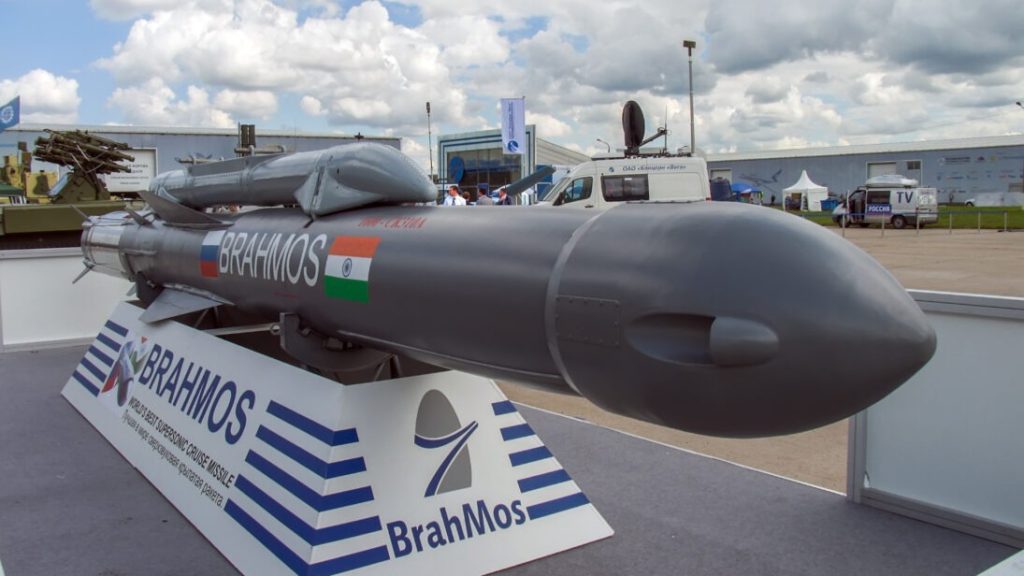A recent Wall Street Journal report highlighted that during the recent May 2025 crisis between India and Pakistan, the United States was fearful of the escalation of conflict to a nuclear level because of the use of a dual-capable BrahMos missile by India. Similarly, a senior spokesperson of the Pakistan Government also commented that when India launched a BrahMos missile on Nur Khan airbase, the response time was very low, and it was difficult to predict whether the launched missile was nuclear tipped or not. This incident highlights the danger of a missile with dual-use capabilities and its implications for crisis stability and inadvertent escalation due to the shortening of decision-making windows. A major lesson from this conflict should be to take steps to resolve dual-use ambiguities by separating nuclear and conventional missile roles.
In the May 2025 crisis between India and Pakistan, many new thresholds were crossed, and for the first time, the two nuclear armed states were engaged in a direct military confrontation targeting deep into each other’s territory. These developments set a dangerous precedent for regional stability because of the increasing fog of warfare. In an era of emerging technologies, where the entanglement between nuclear and conventional forces is increasing, any use of force, even at the lower echelon of the escalation ladder can lead to miscalculation and have drastic consequences.
Dual-use delivery systems that can be armed with either a conventional or a nuclear warhead are a particularly destabilizing development. In the case of South Asia, the issue becomes more pertinent because of the reduced timeframes to make decisions when an adversary launches an attack. In this context, the use of BrahMos, a dual-use nuclear capable missile led to serious concerns of escalation in Washington, which believes that the missile can carry both conventional and nuclear warheads. There are risk factors involved in using dual-use delivery vehicles in a conventional conflict between two nuclear weapon states.
Dual-Use Systems and Inadvertent Escalation
The use of dual-use missile systems during a conflict can put the other state in a ‘use-it or lose-it dilemma’ because of the inherent uncertainty of the payload attached. A state assuming the worst-case scenario can interpret a coming salvo of dual-capable missiles as a pre-emptive first strike rather than a conventional attack. Because of the short timeline of decision-making, this can force the other state to promptly respond with inadvertent use of nuclear capabilities.
Dual-Use Systems and Crisis Stability
Another important factor is the impact of these dual-capable missiles on the crisis stability in the context of South Asia. Crisis stability refers to the lack of incentives to strike first in a conflict. Increasing entanglement of nuclear and conventional capabilities is destabilizing as it can lead to confusion and attack on strategic assets through conventional means. Moreover, dual-use delivery systems can lead to misperception and miscalculation in a nuclearized environment. Conventional-nuclear entanglement is one of the major destabilizing factors in the new nuclear age. To strengthen crisis stability, it is important to address the challenge posed by these dual-use systems. Doctrinal ambiguities are also a concerning factor in South Asia, especially because of the increasing perception in Pakistan that India has moved to a first-strike counterforce doctrine.
Untangling Conventional-Nuclear Forces
The Cuban Missile Crisis was an impetus for arms control talks between the United States and the USSR, as both states realized they were closer to a nuclear crisis than ever. Similarly, both India and Pakistan have an opportunity to learn the right lesson from this crisis and move forward towards risk reduction measures. Because of the inherent destabilizing factors associated with dual-use delivery systems, both India and Pakistan need to take steps to untangle their conventional and nuclear forces. For this purpose, both states can consider committing to a system under which nuclear command would not be used for conventional purposes and vice-versa. Pakistan has already declared clearly which of its missile systems are nuclear and which are only for conventional purposes. Transparency and clear communication between the two states during a crisis is extremely important, especially after the May 2025 crisis.
Another important step in this regard can be upgrading the pre-launch notification agreement for missile testing, which only includes ballistic missiles for now. Both cruise missiles and hypersonic missiles should also be made part of this arrangement. Moreover, conventional variants of those missiles that are under the control of strategic forces should not be developed. In this regard, India’s decision to develop a conventional variant of Agni V Intercontinental Ballistic Missile (ICBM) is particularly concerning. Both states should avoid such developments for risk reduction purposes.
Moreover, already developed dual-use systems should be reconfigured into single use only and should be clearly communicated to the adversary that these systems are only for conventional or nuclear purposes. Another pertinent step in this regard could be for both states to develop separate command and control centers for clearly distinguishing between conventional forces and nuclear forces. Both India and Pakistan should also develop separate storage sites for their nuclear missile force and conventional missiles to reduce the entanglement of their forces. One of the right lessons for both states to learn from the recent May 2025 crisis is that the development and deployment of dual-use systems present a grave risk for regional security Therefore, the discussed risk reduction measures for de-entangling nuclear and conventional forces are necessary steps for decreasing the chances of inadvertent escalation between the two nuclear states.
This article was published in another form at https://southasianvoices.org/sec-m-pk-r-dual-use-stability/
Abdul Moiz Khan is Research Officer at the Center for International Strategic Studies (CISS), Islamabad.

